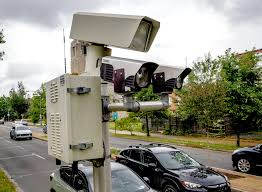The idea of privacy, which is the state or condition of being free being observed or disturbed by other people, is a very important topic that more people should care about. I myself don’t think about privacy issues daily or even really until now. However, it is a pressing matter that needs to be more commonly discussed by the federal government and private citizens as well.
The first TEDtalk discusses the idea of electronic tattoos. Juan Enriquez makes the metaphor that what you post and what is posted about you online is like an electronic tattoo, permanently on display. He makes the claim that “electronic tattoos also shout” just like ink ones do. This is a warning that has been taught over and over again to me and my generation, by our parents, friends, older siblings, teachers, and more. Moreover, he claims that their permanence is immortal and can always be traced back no matter how far back it is.Catherine Crump then goes on to discuss all of the modern technology that is currently being used by both the federal government and police departments to gather data on private citizens. Through modern technology such as traffic cameras, car GPS, and so on, the government is able to pinpoint where you are at specific times. In addition, they are using this on all citizens, so therefore when they cross reference the data, they can tell who citizens are interacting with, where, and sometimes even why. This is a very scary and eye-opening TEDtalk. I think that this is a major overstep into citizens’ rights and that laws need to be passed in order to correct this behavior and prevent it from continuing to happen.
Christopher Soghoian spends his TEDtalk informing listeners about wiretapping and surveillance systems within lines of communication. He mentions that “first and foremost”, telephone networks and companies built surveillance systems and features into their products. This data was collected and accessible to the federal government as well as police departments. However, there is less and less use of landlines and now dated lines of communications, as the IPhone has become increasingly popular. The IPhone has apps such as iMessage, facetime, and Whatsapp, all of which have strong encryption technology that is not easily wiretapped.
Nevertheless, we’ve all been scrolling through social media or online shopping when targeted ads, videos, or posts appear that you may have been talking about earlier in the day. In recent years, there have been debates about how to maintain your privacy while also having a smartphone. There is no doubt in my mind that iPhones listen to you. In fact, one of the features of the Apple IPhone is “Hey Siri”, which allows Siri to activate through voice command. This feature has been set off by somewhat similar phrases or sometimes just random conversations. Now it is claimed that Siri is not always listening, however in 2019 a privacy scandal arose when it was released that several conversations had been “accidentally recorded”. Therefore, privacy is not only being violated by the government or government departments, but private companies as well.
The fourth video was very upsetting. This type of privacy invasion and violation is horrifying. People never think that it will happen to them, however Darieth Chisolm breaks that mindset as she shares her own story. Her movement's website, 50 Shades of Silence, includes shocking facts such as “87% of Americans have a smartphone that connects to the internet-exposing them to possible threats” and that “72% of internet users have witnessed at least one harassing behavior online”. These statistics prove that this is a major issue that needs to be more talked about among lawmakers and government officials. There is not enough protection of people’s privacy when it comes to laws, and even worse there are not enough laws to help get justice after the crimes are committed. Darieth shares that it took months and several courtroom trips, including sharing the website contents with numerous teams of male lawyers, for them to even issue for the website to be taken down. This is unacceptable and things need to change. The laws and rights of citizens have not developed nearly fast enough to keep up with the ever evolving internet and digital age.






No comments:
Post a Comment